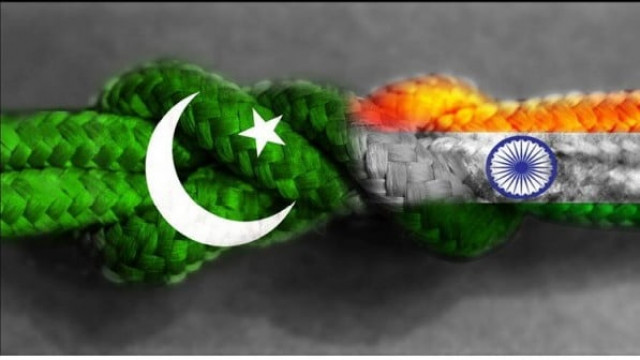It’s time to talk
Indo-Pak relations over last decade has been characterised by India insisting letting up on cross-border terrorism.

It’s time to talk
If this exchange is genuine and not choreographed to maintain the deadlock, then the next step will have to be taken in the same spirit: a meeting between Indian Foreign Minister SM Krishna and counterpart Shah Mahmood Qureshi after consigning to oblivion the meeting they had in July last year, where no ground was given during talks and Mr Qureshi ended up rather ham-handedly accusing Mr Krishna of having arrived without a brief.
Enough of looking-over-the-shoulder rhetoric for both sides! India’s ‘terrorism first’ line is suffering from fatigue inside India. An opinion piece in India’s prestigious daily The Hindu observed: “Further delays in the resumption of dialogue with Pakistan will not make it easier to get satisfaction on the terror front. An entire year has passed since the Manmohan Singh government decided it was time to find a way to break the dialogue deadlock and kick-start the process of engagement with Pakistan.”
The tenor of Indo-Pak relations over the last decade has been characterised by India insisting on Pakistan letting up on cross-border terrorism and Pakistan insisting on talking of all the items of disagreement, including Kashmir. Preconditioning dialogue means dooming it beforehand. If India trims its sail, under much persuasion from the international community, will Pakistan, too, bend a little?
Pakistan has just celebrated its Kashmir Day with a countrywide holiday and Kashmiri leaders in Pakistan — who, not long ago, said that jihad is no solution — are once again talking of (covert?) war. For some months now, the very jihadi organisation accused by India and the international community of carrying out terrorist attacks in India and Afghanistan has been allowed to spearhead public agitation on three crucial national issues: the river waters Pakistanis think is being stolen by India; the blasphemy law which threatens the minorities in Pakistan; and the Kashmir issue which the said jihadi organisation thinks can only be resolved through war, even nuclear war.
Out of the two stalling states, Pakistan is in deep internal trouble. Its economy is belly-up, posting its lowest growth rate, and inflation threatening to go hyper. Because of terrorism and regional disaffection, governance is at its lowest ebb. There are foreign and local terrorists on its soil who bomb any place they like and kill whomever they choose, anywhere in the country. Under pressure from shortages and natural calamities, the people are adopting extremist views and embracing xenophobia not suitable for a state in such dire need of external support. The courts are bending in the face of extremism and are not protected against terrorist threats when hearing cases against terrorists.
Those in India who think it’s no use talking to Pakistan when it is sinking should know that waiting for Pakistan to evaporate from the face of the earth may take too long and lose India the chance to help Pakistan at arriving at a bilaterally acceptable solution to disputes which will actually be Pakistan’s ‘self-correction’ in disguise. It is quite possible that Pakistan has lost its ability to set things right at home even if it wants to, in which case it needs to be helped rather than challenged.
Published in The Express Tribune, February 8th, 2011.















COMMENTS
Comments are moderated and generally will be posted if they are on-topic and not abusive.
For more information, please see our Comments FAQ